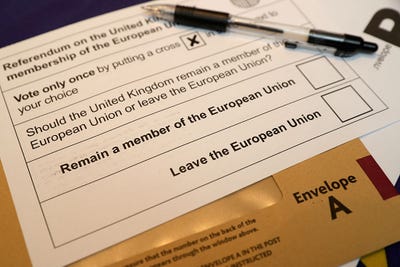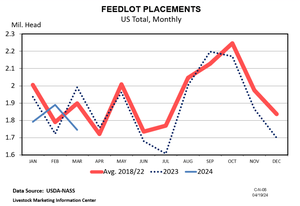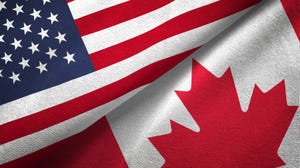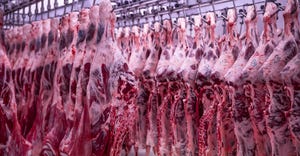June 29, 2016

Immediate fallout from Great Britain’s closely contested vote to exit the European Union (EU)—global financial markets plummeting amid currency realignment—underscore the concerns that prompted the vote. Those concerns include things like waning economic and cultural sovereignty and the fact that a single decision made by one country in one part of the world could create such chaos for everyone else.
It’s too simple to think of it as anti-globalization, per se. The EU began in 1993 with the signing of the Maastricht Treaty, but threads of its history stretch back to soon after World War II. Pacts and organizations that preceded the EU were primarily trade and economic agreements—collaborations to develop and share energy resources, agreements to reduce import tariffs between member countries and what not.
Somewhere along the way, all of that morphed into a federation government regulating the economic, social and foreign policies of member countries. In simple terms, it would be like NAFTA partners—the U.S., Canada and Mexico—allowing a committee to decide what they could and couldn’t do as nations in other matters besides how they trade with one another.
Aside from added uncertainty, the most immediate impact affecting U.S. beef is the stronger dollar, making it more expensive for international customers to import beef from the U.S.
“The U.S. dollar strengthened, not only against the British pound, but also against most other currencies,” explains Derrell Peel, Extension livestock marketing specialist at Oklahoma State University, in his weekly market comments. “The Japanese yen also strengthened sharply as global markets turned to the safe havens of the dollar and the yen.”

Photo by illustration by Christopher Furlong/Getty Images
It is likely that a good deal of the uncertainty surrounding the U.K. departure from the European Union will subside, Peel says, but the timetable is unknown and some impacts will persist for extended periods or permanently. “Meantime, U.S. beef and other meat markets are hampered by the additional headwinds of a stronger dollar slowing exports and supporting imports.”
The process of the exit itself seems rife with unknowns, including exactly how and when. Odds favor a chaotic and lengthy process measured in years. For that matter, there will be plenty of speculation on the sustainability of the EU itself. Lots more uncertainty, in other words.
The U.S. exported $6.3 billion of beef and variety meat in 2015, according to the U.S. Meat Export Federation (USMEF). The EU only represented about 4% (approximately $250 million), thanks in large part to the restrictive tariffs and non-tariff trade barriers imposed by the EU. But the U.S. continues to work for increased trade there through the ongoing negotiations surrounding the Transatlantic Trade and Investment Partnership (TTIP).
“Imports of U.S. beef under the European Union’s duty-free, high-quality beef quota were challenged this year by a weak euro and increasing pressure on the quota’s capacity due to larger imports of Australian and Uruguayan beef,” according to the USMEF Annual Report 2015.
“The indirect effects will matter the most,” says Philip Abbott, professor of agricultural economics at Purdue University, who researches international trade and agriculture. “The effects on agricultural trade will be through the exchange rate mechanism and through any negative business cycle effects involving global demand. How big those are depend on whether this is a temporary or longer-term situation and how long the very recent changes in exchange rates and interest rates persist.”
Abbott points out that a strong dollar makes U.S. exports more expensive to the rest of the world and that a widely held belief in the agricultural industry is that trade and a weak dollar are good for U.S. agriculture.
Mike Boehlje, Purdue University distinguished professor of agricultural economics, adds that the Brexit vote drew more attention to the issue of globalization versus nationalization—essentially, open or closed markets.
He explains that supporters of the referendum to withdraw contend that the influence and sovereignty of Britain has suffered under the EU’s trade and economic regulations and its policies on immigration and the free movement of people within the 28 European countries in the bloc. Similar issues have come up in the current U.S. presidential election campaigns.
“Generally, agriculture is much more dependent on international trade than other parts of the economy,” Boehlje says. “Globalization is important to U.S. agriculture to keep markets open to access.”
You might also like:
Use cow-pie-ology to monitor your herds nutritional status
70 photos of hardworking beef producers
5 must-do steps for fly control on cattle
Here's when you should castrate beef valves
When is the best time to wean? It might be younger than you think
You May Also Like



